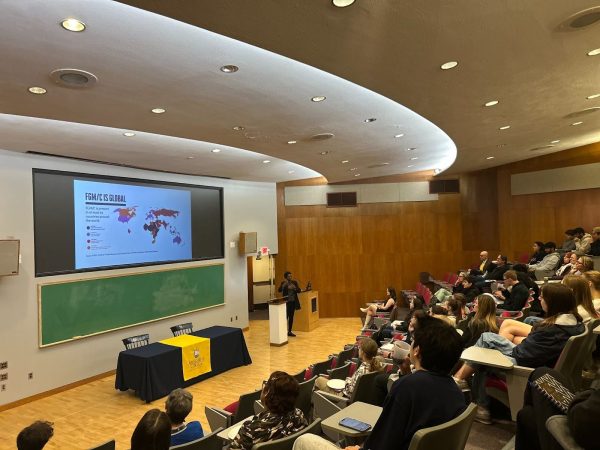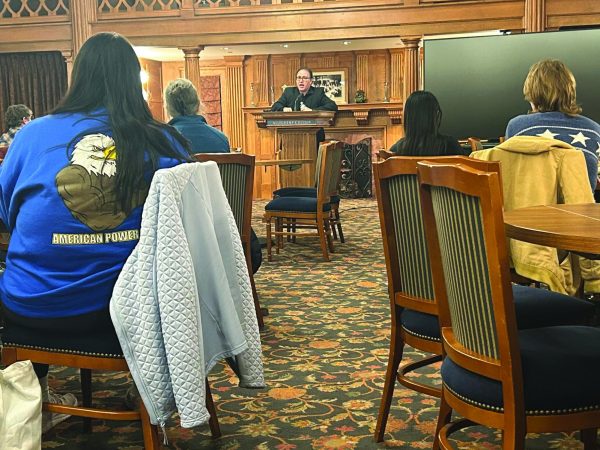Column: What are the drawbacks of free college?
Critics point to increased taxes, tuition for private institutions increases
Wouldn’t it be nice if everything were free? Imagine how much easier the cost of living, healthy food and healthcare would be. Unfortunately, nobody lives in that type of utopia. Someone still has to pay money, in taxes, for any type of government-related program, and that includes “free college.”
When I first wrote this article, I originally had a hard stance that college should not be free for pretty much anyone (besides those who were awarded scholarships). I figured that if college were free for everyone, taxes would soar. I also believed that if someone could not afford a four-year college, or would be burdened by student debt, they should go to a community college or state school. I have friends back home (in New York City) who either could not afford a four-year college out-of-state, or were not the best of students, but they still went to the State University of New York, City University of New York, or community colleges, which are all well-regarded. Also, if someone could not afford college, they could find paid internships or jobs to join the workforce right out of high school.
After further research, and talking to several friends about my stance on free college, I came to several conclusions. First, taxes would not necessarily soar, but there would certainly be an increase. Curious about what a college affordability plan would look like, I investigated Elizabeth Warren’s proposal. According to the Committee for a Responsible Federal Budget, Warren wants to increase Pell Grant spending, make public university free (at least for lower-income families) and offer loan forgiveness for families struggling with student debt (Committee for a Responsible Federal Budget). On the surface, this plan sounds effective, right? Most people want their peers to have the chance to excel and go to college. So why exactly are people critical of her plan? Well, this plan would cost $1.25 trillion over the next 10 years, or $125 billion per year. At first, this figure did not seem too large, considering the U.S. spends trillions of dollars per year as it is, but after a closer look this would be a significant increase in government spending, even for U.S. federal spending. According to the National Priorities Project, and the Office of Management and Budget (part of the executive branch), this would more than double the federal spending on education. Despite this figure, education still would not even make up 6% of the federal budget. That said, Warren could offset the increase in taxes if she were to cut some of the military spending. The U.S. already spends over $600 billion per year and uses more than 15% of the federal budget solely for military purposes. If Warren would cut even $60 billion or so, that could help the process toward offering free college.
Second, most students want to go to four-year colleges, and at the very least have the option of going out of state. In my personal experience, New York has great colleges throughout the state, but this may not be the case for other states. As a result, students from New York may feel more comfortable and have a greater desire to go to community colleges than students from other states.
Third, not going to college, and going straight into the workforce scares a lot of people, and rightly so. Employers are looking for more qualified people — usually those with some sort of college education. As a matter of fact, in 2017 Americans had their highest percentage of college graduates aged 25 or older at 33%, according to the U.S. Census Bureau. Therefore, those without a college education are put at a disadvantage. Also, even those with a college education are facing more competition for jobs because of the continual increase of college graduates.
Consequently, because of the fierce competition for employment, many people who oppose free college believe the competition would become even worse. If college were free, it would almost become a commodity and would decrease the value of a college education. Even now, many college graduates leave college unemployed and seeking work. Additionally, if the only tuition for public universities were made free (which is part of Elizabeth Warren’s proposal), private universities could become more expensive. The same concept applies, except the competition between private universities would become worse. The stigma behind going to a community college would strengthen, as they are far less expensive. Also, community colleges would be much easier to get into because they are seen as less effective than a four-year school. As a result, making college more accessible for everyone could potentially have some drawbacks.
So offering free college remains difficult for several reasons: they could lead to higher taxes, make finding employment more difficult, and would likely only make free college possible within public universities, which would not necessarily make the education at those universities as effective as private universities. However, ignoring the problem, and disregarding the fact that many Americans face large amounts of student loans, will not help either. Perhaps instead of trying to make college free, we should focus more on student loan forgiveness. One aspect of Warren’s plan that I agreed with was having income brackets dictate how much money can be awarded to those with student loans.
Consequently, this plan would specifically target Americans who receive financial aid because wealthier American families tend to pay a smaller amount of student loans.
The notion of free college is complicated and problematic. However, most Americans should agree that there has to be an easier way to avoid student loans. Either way, it will take a bipartisan effort to try to solve this dilemma, and is an important, relevant discussion to tackle head-on.

Adam Cohen is a third-year student from New York City. This is his second year on the Campus staff and he is a Communication major with a double minor...








annonscatboy • Apr 28, 2023 at 11:28 am
idk i cant read
John Franken • Nov 25, 2019 at 8:44 am
Good article, Adam Cohen. You did a good job laying out the pros and cons, many of which I hadn’t considered. Thanks!
annonscatboy • Apr 28, 2023 at 11:32 am
what does it say ?